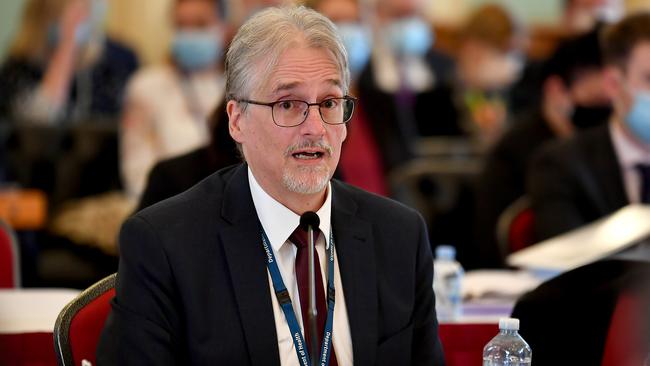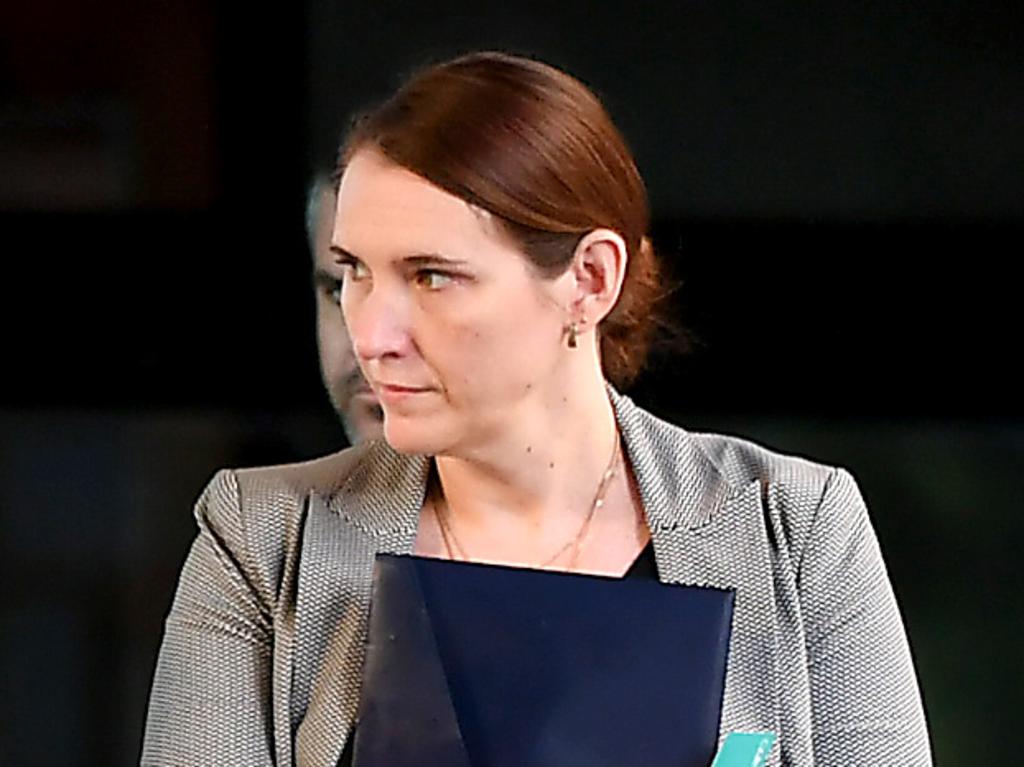Queensland Health given incorrect advice on DNA testing thresholds, inquiry hears
Queensland’s troubled forensic laboratory should never have stopped testing samples with low levels of DNA, health boss Shaun Drummond told a public inquiry.

Queensland’s troubled forensic laboratory should never have stopped testing samples with low levels of DNA, health boss Shaun Drummond told a public inquiry.
It would have cost just $1m a year for the health department’s lab to continue testing crime scene samples with the low DNA levels, providing crucial evidence for police investigations into murders, rapes and other serious crimes.
Mr Drummond, Queensland Health director-general, told an inquiry there was enough money in the department’s $24bn budget to cover the cost of testing, but the lab made no funding requests.
The inquiry is probing reasons behind a 2018 decision to introduce a new DNA testing threshold that was designed to improve turnaround times for police but resulted in key evidence being missed in potentially thousands of investigations.
Mr Drummond said the cost of continuing to test below the threshold would have been a small fraction of the budget.
Commissioner Walter Sofronoff KC probed: “Nobody asked for more money or said they needed more money?”
Mr Drummond replied: “Not that came through the formal channels.”
Last week Paul Csoban, executive director of forensic services when the threshold was introduced, confirmed he never sought specific funding for the DNA lab.
The inquiry also heard Mr Drummond and Health Minister Yvette D’Ath were misled with “disingenuous” advice from the lab that seriously downplayed consequences of the threshold.
As The Australian and police tried to sound the alarm on concerning testing practices earlier this year, lab managers and senior bureaucrats moved to downplay problems and hose down issues raised by DNA expert Kirsty Wright.
Mr Drummond said he and Ms D’Ath would have moved to fix the testing threshold sooner if they were aware of the scale of the disaster.
The 2018 decision to introduce the threshold was never “briefed up” the public service chain of command and many decision-makers in the Palaszczuk government were not aware of the major change until it was exposed in The Australian’s investigative podcast series, Shandee’s Story.
Concerns were raised in mid-February by Dr Wright, who worked at the lab until 2007, as part of Shandee’s Story.
After the podcast episode aired, Mr Drummond was told problems in the lab were being raised by a “disaffected employee”.
Deputy director-general Keith McNeil also assured him “only a small proportion of testing would be impacted by adopting a different threshold”.
Mr Drummond, who only started as director-general on March 14, told the inquiry he was repeatedly advised the success rate of testing below the threshold was about 1 per cent.
But this figure ignored other crucial data that could help police solve cases. In the lab’s own data from 2018, “meaningful results” could be generated in 10.6 per cent of samples.
Mr Drummond said Professor McNeil and forensic executive director Lara Keller both gave misleading advice, which likely came from managing scientist Cathie Allen.
“It is disingenuous to constantly put to us that it is 1 per cent, but that is only what is referred to as a cold link to the national database,” he said.
Counsel assisting, Susan Hedge, asked: “And do you say it is disingenuous on the basis that the person saying that would have known that was not the only relevant percentage?”
Mr Drummond: “Yes.”
Ms Hedge: “Who was the person that put forward that 1 per cent in a way that you considered to be disingenuous?
Mr Drummond: “That was effectively both Dr McNeil and Lara Keller, on the information … provided to them through Cathie Allen. I believe they were representing a position that had not been explained to them. So somewhere in that line, someone was not representing the correct facts.”
Hearings resume on Monday.






